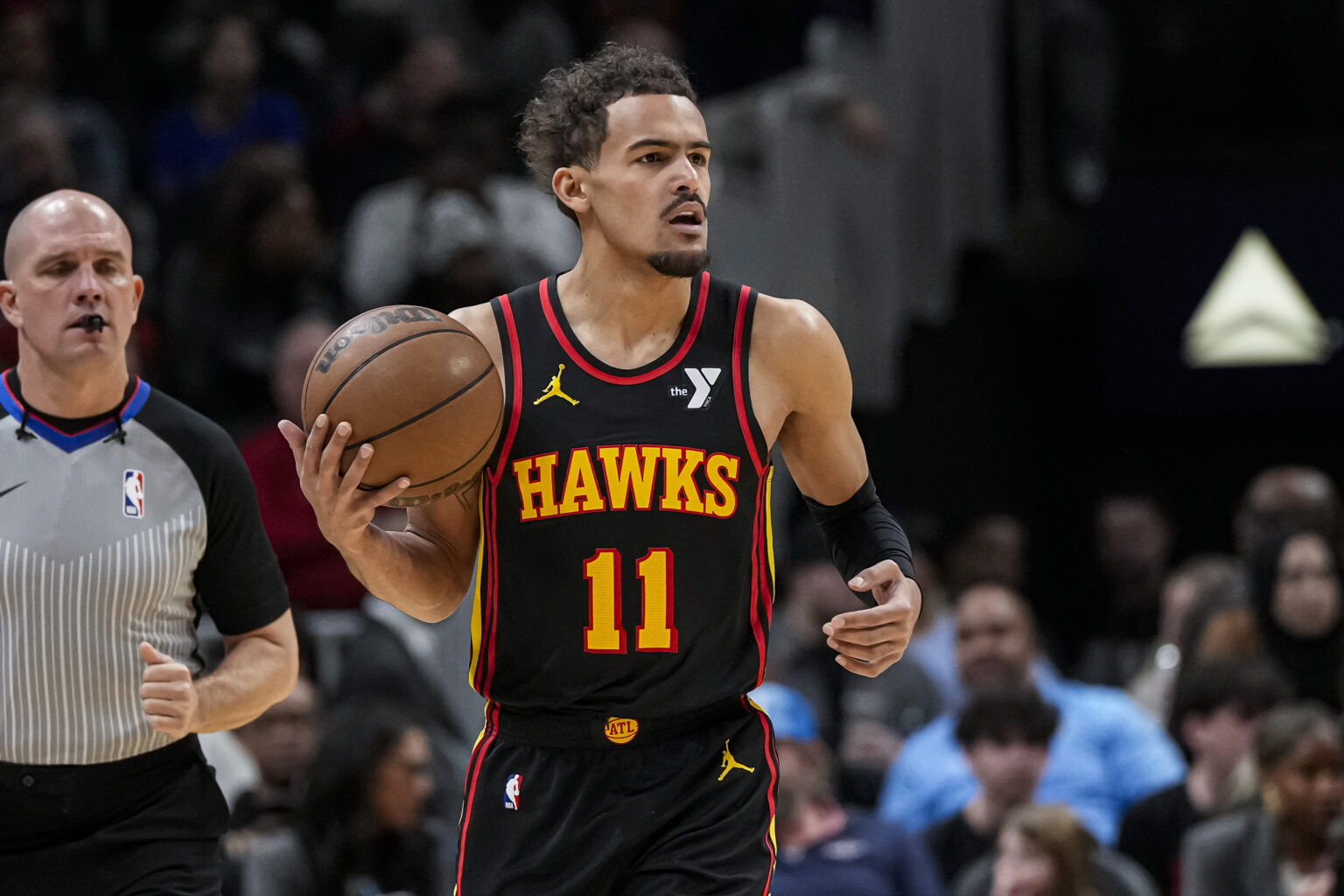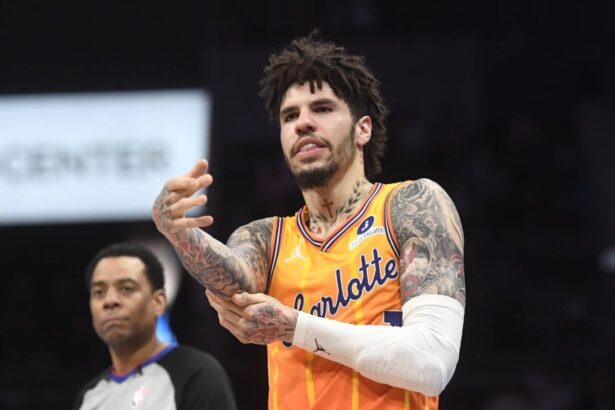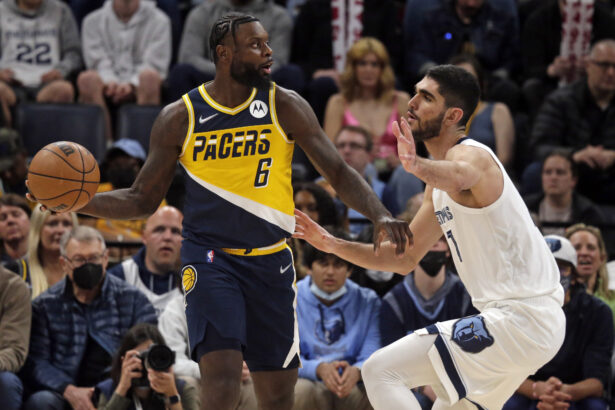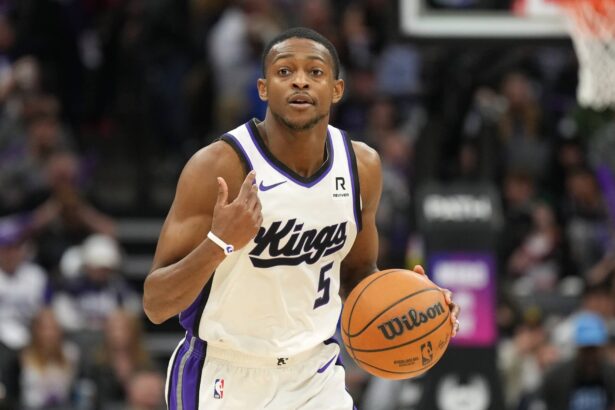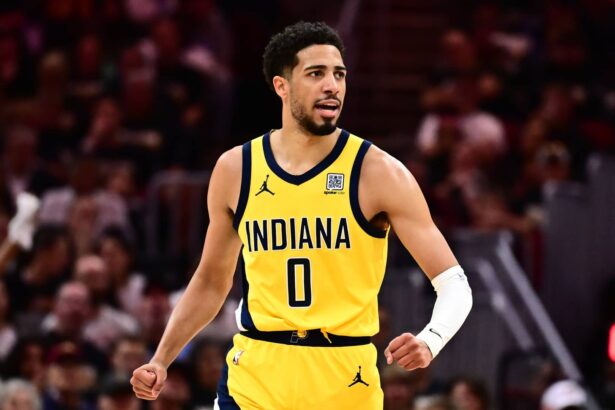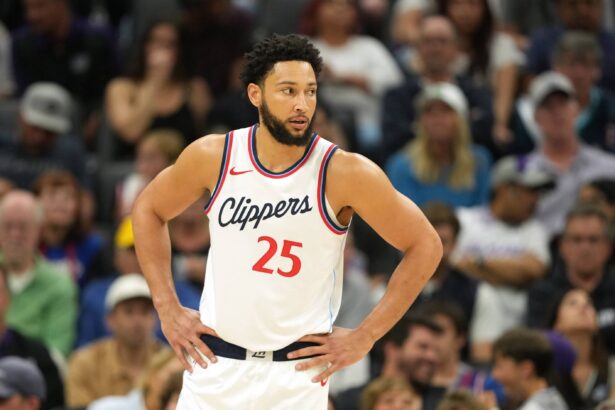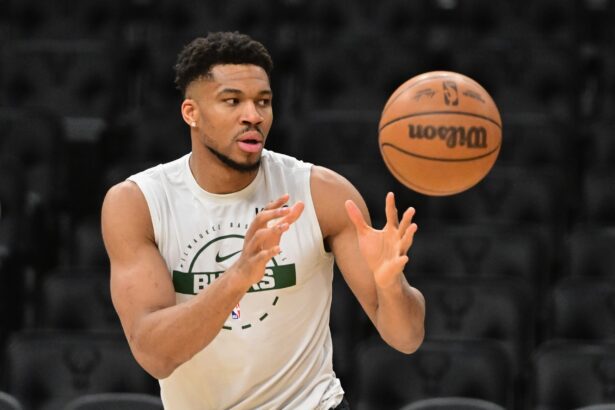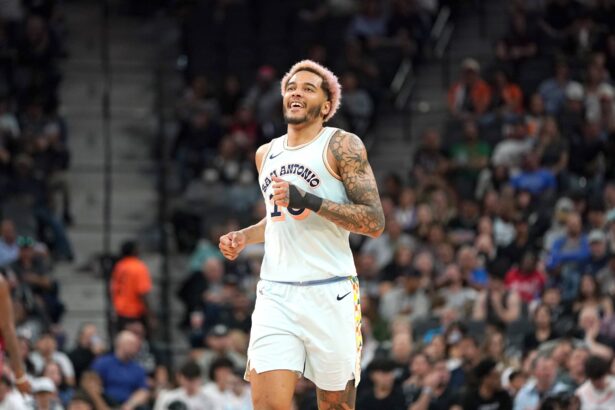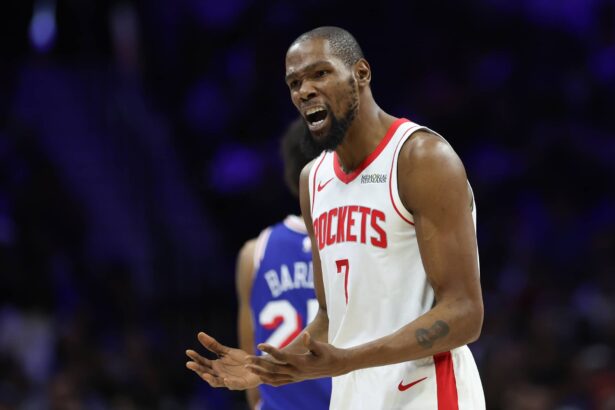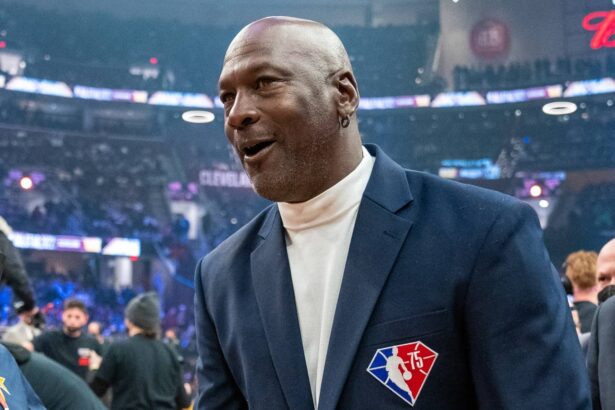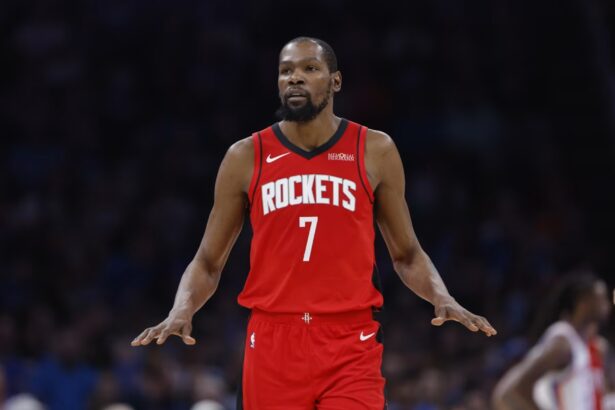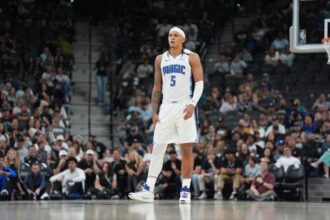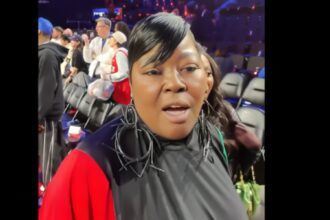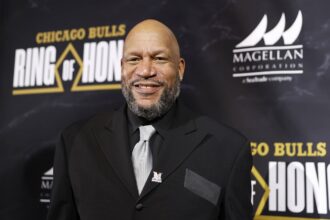Gilbert Arenas, former NBA star turned analyst, recently shared his insights on why Trae Young, despite his impressive stats, may find it challenging to secure another All-Star nod. Young, who averaged 27.3 points and 10.9 assists per game while shooting 43.5% from the field and 38.4% from beyond the arc, was notably snubbed for the All-Star team. Arenas dissected the factors at play on his show, ‘Gil’s Arena’.
“They changed the system that goes against him as a player. You know he didn’t get voted in, so he had to rely on the coaches to vote him in last two years.”
Arenas pointed out the shift in the All-Star selection process, highlighting that previously Young relied on coach votes to secure his spot after not being voted in by fans. However, this changed as Young garnered enough fan votes to secure a spot, which rendered the coach votes irrelevant for the first time in his career.
“But they have a new thing in play where, players and media gets 50% of the votes so now he has to deal with the people who actually don’t like him. So players don’t like him. They rank him last at everything anyway. They call him overrated. The coaches don’t like him.”
“So what ends up happening is this is a disadvantage for a player like that. Not because he’s overrated, because of how the game is played. I’m busting your a**. I’m talking s**t. You don’t like it. So now you have to vote and when you see my name you’re gonna think about the 45 to 50 I gave on you and you’re gonna be like nope.”
The analyst delved into the recent alteration in the selection system where players and media now hold 50% of the voting power. Arenas suggested that this might disadvantage players like Young, as not all players or coaches hold him in high regard. He implied that some players rank Young poorly, labeling him as overrated, which could influence their voting decisions based on personal animosity stemming from on-court rivalries and conflicts.
Arenas elaborated on the consequences of this new dynamic, emphasizing the challenge Young faces in garnering votes from peers who may harbor resentment due to on-court interactions. He explained that players might recall past confrontations where Young outperformed or trash-talked them, leading to reluctance in supporting his All-Star bid.
“This is horrible for players like somebody like Trae Young because now you got your celebrity-ism up, your popularity up to be voted by the fans, right?”
“Trae he’s gonna have to really kiss a**… man good game I’m sorry like that’s what he’s gonna have to end up doing to get back in players’ good graces he has to be quiet play the political game.”
Furthermore, Arenas touched on the impact of celebrity status and popularity in the voting process. He highlighted that despite Young’s high fan votes, the addition of player and media votes presents a new obstacle. Arenas suggested that Young would need to navigate a political landscape, possibly needing to curry favor with players through diplomacy and humility, regardless of his on-court prowess.
In essence, Arenas outlined the complex interplay of factors influencing All-Star selection, emphasizing the challenge for players like Young to secure votes from both peers and media despite their statistical achievements. The shift in the selection process introduces new hurdles, requiring players to navigate interpersonal dynamics alongside their on-court performance to earn All-Star recognition.
The Player Voting Has To Get Better
Amidst the player empowerment movement in the NBA, there’s a growing recognition that player voting for awards and honors needs improvement. While the inclusion of players in the voting process was intended to empower them, it has revealed some concerning trends, including absurd votes.
Instances, where injured players like Steven Adams, Lonzo Ball, Vlatko Cancar, Brandon Clarke, and Jaylen Clark received votes despite not playing a single minute, raise questions about the validity of the process. Similarly, players who rarely see the court, such as Jacob Toppin, Frank Ntilikina, Ricky Council IV, Mouhamed Gueye, and TyTy Washington, have also received votes, highlighting the need for more informed decision-making.
The current state of player voting underscores the necessity for reform. One proposed solution is to reduce the weightage of player votes until the process improves. By gradually decreasing the percentage of influence player votes have on the final outcome, the NBA can mitigate the impact of uninformed or nonsensical votes while still valuing player input.
Additionally, implementing measures to prevent players from voting for teammates could enhance the integrity of the voting process. This would eliminate biased voting and ensure that selections are based on merit rather than personal affiliations.
In summary, while player empowerment in the NBA is vital, it’s clear that the current player voting system for awards needs refinement. By adjusting the weightage of player votes and prohibiting votes for teammates, the league can work towards a more fair and credible selection process that accurately reflects player performance and merit.
“Thank you for being a valued reader of Fadeaway World. If you liked this article, please consider following us on Google News. We really appreciate your support”

